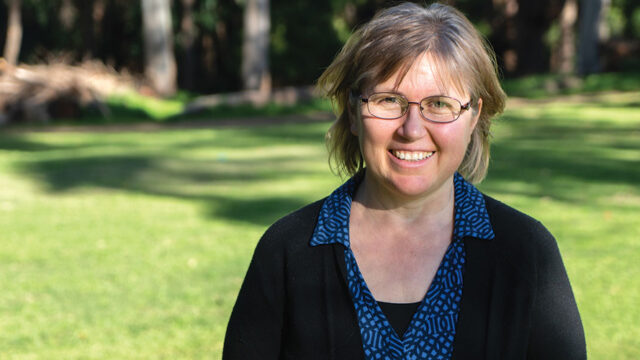Integrity is all about wholeness—being one and the same thing all the way through.

“Integrity, unswerving integrity, is the principle that you need to carry with you into all the relations of life.”*
When I teach seminars on leadership integrity to pastors and church administrators around the globe, I frequently begin where your grammar teacher began: “What is the root meaning of integrity?” I’m usually first offered synonyms, such as “honesty,” “ethical character,” or even “respect for order.” All these meanings are in the orbit of integrity, but don’t get at the core definition.
So I try another approach: “What other words does integrity sound like? Think primary school mathematics,” I prompt, and soon enough someone lands on it. “Integer,” they will say—to which I always ask, “And what is an integer?” I watch the years of half-remembered definitions roll away until someone sings out: “A whole number. An integer is a whole number.”
“And there you have it,” I add. “A person with integrity is a whole number—a whole person. Yes, integrity requires honesty, and it surely demands an ethical character. But at its root, integrity is all about wholeness—being one and the same thing all the way through.”
It should be obvious that broken, inconsistent sinners can never achieve integrity by ourselves. It doesn’t cloak us because we are self-disciplined (though self-discipline blesses us) or because we mark out careful boundaries for our behavior—even though that is common to all with integrity. The wholeness inherent in integrity always begins with the grace available to every sinner through the blood of Jesus Christ. In His name—and for His fame— we hear His declaration that we are justified, and continue to journey with Him as He grows in us the virtues of wholeness: “love, joy, peace, patience, kindness, generosity, faithfulness, gentleness, and self-control” (Gal. 5:22, 23, NRSV).
Implied in this familiar listing of the “fruit of the Spirit” is a commitment to the integrity—the wholeness—of others. This happens through our faithful witness to the life-changing power of the gospel to make us whole—“until Christ is formed in you” (Gal. 4:19, NRSV). Helping to bring wholeness—physically, mentally, and spiritually—to those around us is the illustration to a watching world that Jesus is transforming us into persons of integrity.
This edition of Adventist World traces the theme of integrity in several ways, though the word itself never appears. The remarkable international film project featured here is all about a burning desire to bring wholeness to struggling young adults through the media they embrace. The Global View column by Elder Wilson is an appeal for message integrity as this remnant movement faces the end-time. And the new initiative, “Back to the Altar,” reminds us that integrity and wholeness are first learned and best built through consistent family worship experiences.
Pray that a loving Father will deepen and strengthen your personal integrity and that of your brothers and sisters around the Adventist family.
* Ellen G. White, in Signs of the Times, Sept. 18, 1884.








